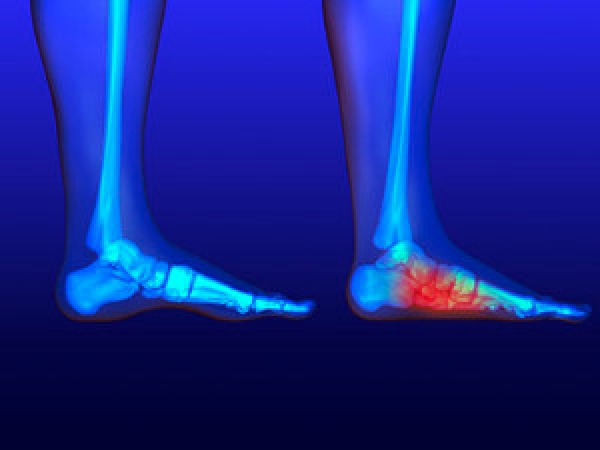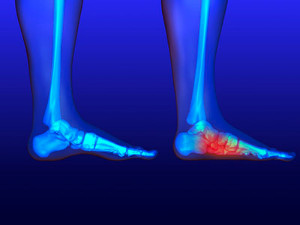While there are several different types of flatfoot, all of them involve a loss of the arch—either partial or total. Flexible flatfoot is a common form of this condition where the arch collapses upon standing and returns to normal when there is no weight on the foot. Because having flat feet changes the alignment of the foot (toes point outwardly, the heel points toward the outside of the foot, and the ankle turns in), people with this condition may be more prone to developing bunions and hammertoes. Flexible flatfoot may cause pain in various areas of the foot including the arch, heel, ankle, shin bone, or on the lateral side of the foot. Additionally, there may be some pain in the knee, hip, or lower back, and overall fatigue or aching in the feet or legs. A podiatrist can diagnose flatfoot through an examination and by taking an X-ray. Non-surgical treatment may involve shoe modifications, physical therapy, losing weight, modifying activities, or even wearing ankle or foot orthoses to help support your arches and adjust your gait. For a proper diagnosis and to determine what treatment option is best for you, it is suggested that you visit a podiatrist.
Flatfoot is a condition many people suffer from. If you have flat feet, contact Dr. Joshua David Scoll from Pennsylvania. Our doctor will treat your foot and ankle needs.
What Are Flat Feet?
Flatfoot is a condition in which the arch of the foot is depressed and the sole of the foot is almost completely in contact with the ground. About 20-30% of the population generally has flat feet because their arches never formed during growth.
Conditions & Problems:
Having flat feet makes it difficult to run or walk because of the stress placed on the ankles.
Alignment – The general alignment of your legs can be disrupted, because the ankles move inward which can cause major discomfort.
Knees – If you have complications with your knees, flat feet can be a contributor to arthritis in that area.
Symptoms
- Pain around the heel or arch area
- Trouble standing on the tip toe
- Swelling around the inside of the ankle
- Flat look to one or both feet
- Having your shoes feel uneven when worn
Treatment
If you are experiencing pain and stress on the foot you may weaken the posterior tibial tendon, which runs around the inside of the ankle.
If you have any questions please feel free to contact one of our offices located in Philadelphia, Bensalem, and Fairless Hills, PA . We offer the newest diagnostic and treatment technologies for all your foot and ankle needs.


